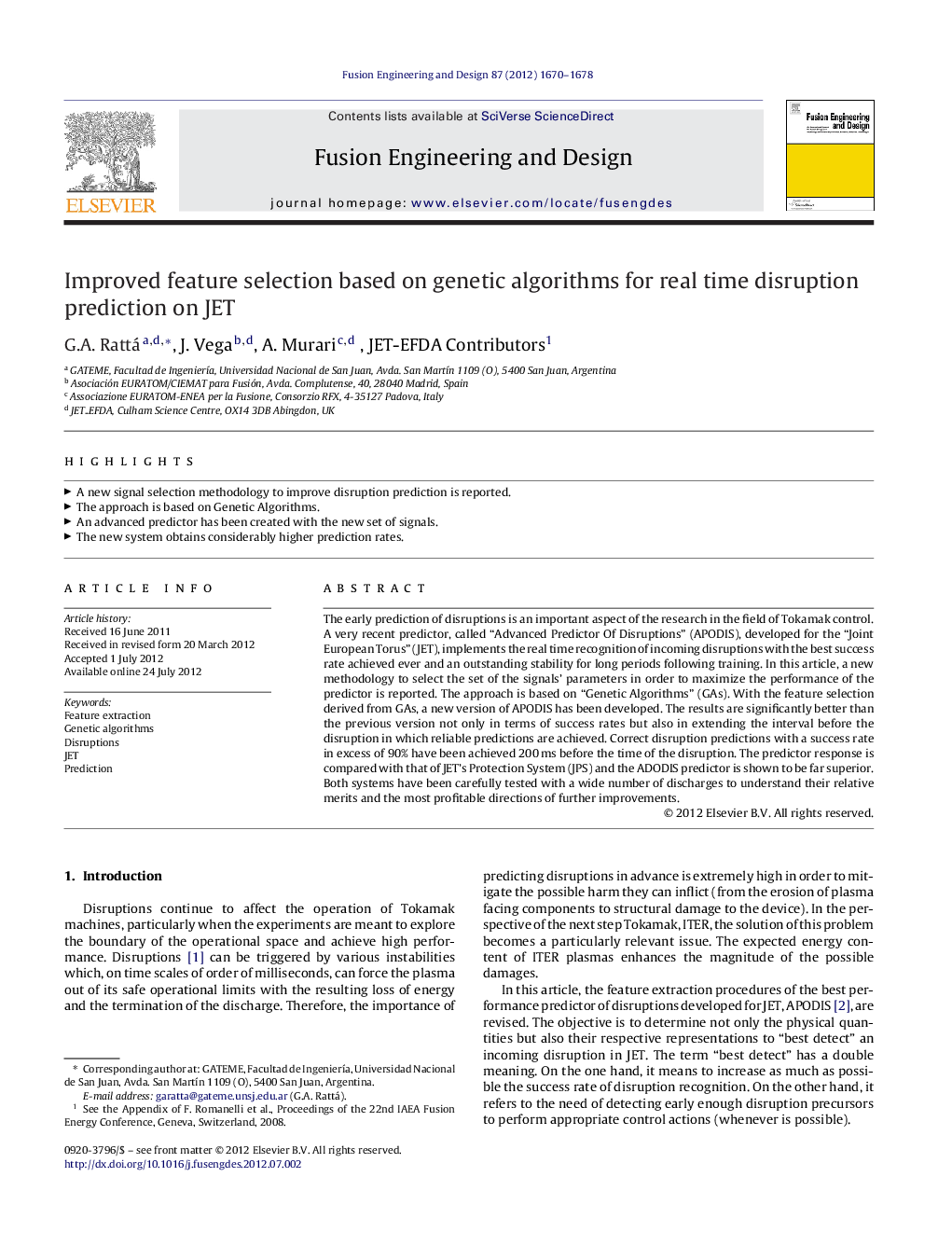| Article ID | Journal | Published Year | Pages | File Type |
|---|---|---|---|---|
| 272169 | Fusion Engineering and Design | 2012 | 9 Pages |
The early prediction of disruptions is an important aspect of the research in the field of Tokamak control. A very recent predictor, called “Advanced Predictor Of Disruptions” (APODIS), developed for the “Joint European Torus” (JET), implements the real time recognition of incoming disruptions with the best success rate achieved ever and an outstanding stability for long periods following training. In this article, a new methodology to select the set of the signals’ parameters in order to maximize the performance of the predictor is reported. The approach is based on “Genetic Algorithms” (GAs). With the feature selection derived from GAs, a new version of APODIS has been developed. The results are significantly better than the previous version not only in terms of success rates but also in extending the interval before the disruption in which reliable predictions are achieved. Correct disruption predictions with a success rate in excess of 90% have been achieved 200 ms before the time of the disruption. The predictor response is compared with that of JET's Protection System (JPS) and the ADODIS predictor is shown to be far superior. Both systems have been carefully tested with a wide number of discharges to understand their relative merits and the most profitable directions of further improvements.
► A new signal selection methodology to improve disruption prediction is reported. ► The approach is based on Genetic Algorithms. ► An advanced predictor has been created with the new set of signals. ► The new system obtains considerably higher prediction rates.
